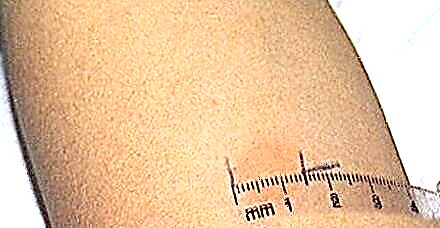
Most children have great mobility and restless activity, they are restless and unable to concentrate on one thing for a long time. This is normal in most cases. But there are situations when you need to figure out whether childhood as such endows your baby with similar characteristics, or whether he has a problem called distracted attention syndrome (attention deficit hyperactivity disorder).

What is absent-mindedness?
We won't talk about teenagers in this article. This topic concerns children of preschool and primary school (primary grades) ages.
Absent-mindedness in a child is a violation of mental activity, in which it is impossible to focus on any one activity for a long time... In this case, the child may be too active or, on the contrary, distant and withdrawn.
This disorder is diagnosed in every fifth child. This is considered a fairly common occurrence.
The first signs of this syndrome can be found already at the age of four. But there are cases when this disorder occurs earlier. For example, infants in the first months of life may experience excessive physical activity or the inability to focus on a rattle or other toy, although they should already be able to do this at this age. In 3-4 years, this syndrome, as a rule, affects the speech skills of children.

There are several types of scattered attention syndrome.
- Only attention is violated without concomitant manifestations and symptoms.
- Attention and emotional background are disturbed (frequent mood swings, irritability, aggressiveness appear).
- Attention is impaired, combined with hyperactivity (restlessness, distraction by extraneous objects and activities, deterioration in academic performance).
- The most difficult type of absent-mindedness is the mixed type. With it, intellectual capabilities are seriously impaired, and the child's behavior is often unpredictable.

Causes
The exact causes of distracted attention have not been established. But hypothetically, physiological and psychological factors in the development of this syndrome are distinguished.
Physiological
Physiological factors include:
- genetic predisposition or heredity;
- the impact on the body of adverse environmental changes in the environment;
- a difficult process of childbirth, resulting in asphyxia, hypoxia of the newborn or any trauma (for example, craniocerebral);
- diseases suffered by a woman during pregnancy (for example, those that can lead to intrauterine infection of the fetus, which, in turn, negatively affects its development);
- smoking, alcohol and drug use by expectant mothers leads to the development of various fetal pathologies, among them the development of attention deficit hyperactivity disorder;
- traumas of the skull and brain suffered in early childhood;
- diseases transferred in infancy, accompanied by a very high temperature (hyperthermia);
- serious disorders in the work of internal organs (chronic diseases of the brain, heart, kidneys, etc.);
- Rh-conflict between a mother and a pregnant fetus - this happens when a woman has a negative Rh factor, and a future baby has a positive one.

Psychological
There are fewer psychological factors than physiological ones, but their presence can have a serious impact on the development of a child's personality. Most often this is an unfavorable and unfavorable situation in the family:
- misconduct of adults towards a child (physical violence, oppression and humiliation of the individual, aggression from adults, lack of communication, attention, love and affection, lack of reasonable ways and methods of education);
- bad habits of parents (smoking, alcohol, drugs);
- tensions between parents (frequent quarrels, scandals, swearing, fights);
- congenital characteristics of the child, the lack of timely adjustment of which can lead to the development of this syndrome on their basis;
- problems with communication and social activity, that is, situations when it is difficult for a child to join the team, to find his place in society (kindergarten, school, playground).


Symptoms
We will list all the known symptoms that characterize the scattered attention syndrome, but it must be borne in mind that not all of them are manifested in every child, their set depends on many factors: on the age and character of the child, on the living conditions and upbringing, on the severity of the disease itself.
It can be assumed that your toddler has attention deficit disorder if he or she exhibits the following symptoms:
- the child is restless and restless;
- does not possess self-control and self-organization;
- does not listen to the interlocutor and does not understand what is being said to him;
- forgetful, but not from memory impairment, but from impaired attention;
- prone to anxiety and fear;
- obsessive, which is often perceived by others as bad manners;
- unable to pay attention to detail, extremely careless;
- almost always there are difficulties (often conflicts) in communicating with parents, educators, teachers, other children;
- the child is not able to complete the started work to the end;
- he cannot follow instructions and rules;
- it is difficult for him to concentrate on any activity, on the performance of one task (this applies to school lessons and household chores);
- when performing a task, the child is often distracted by foreign objects;
- inattention and extreme absent-mindedness become constant companions of the child, because of which he often loses something;
- overly active and mobile, spinning and constantly moving arms and legs, sitting in one place;
- behavioral problems, disobedience, noise, the desire to do everything in spite of everyone;
- unwillingness to put away your toys and tidy up your desk;
- at the age of 7, 8 years there are difficulties in learning, new information is not perceived in full, errors occur at school and in the classroom, problems in mastering writing and counting, this is amplified if, in addition to everything, the information does not arouse interest;
- the child is extremely impatient and practically cannot calmly expect something, for example, the approach of his turn or the origin of an event;
- increased talkativeness, but the inability to talk for a long time on one topic (the child constantly interrupts and often answers questions without listening to them to the end).

How to fight?
Not all children with this disorder can 100% overcome the distracted attention syndrome.
According to the statistics of recovery, in about half of children, the symptoms of this syndrome disappear completely by adolescence, the rest manage to remove most of the unpleasant manifestations and improve the quality of life for the better.
A comprehensive approach is needed to combat this serious ailment. It includes consultations with specialist doctors and drug therapy, strict adherence to a clear daily routine (for both schoolchildren and preschoolers), compulsory classes with a psychologist, correct parenting methods, and a reasonable distribution of emotional and physical stress.
- Medical treatment is not always prescribed by specialists.... Only in the case of very serious violations, when the child's quality of life is extremely deteriorating and leads to the impossibility of learning and adaptation in society. It must be remembered that only a doctor can prescribe medications. It is contraindicated to do this on your own. As a rule, doctors prescribe sedatives to reduce nervous excitability. The use of potent medicines at an early age is prohibited.
- A child with scattered attention syndrome simply needs a daily regimen and its systematic adherence... This will help build the discipline that these children lack. The daily routine must be written and posted in a visible manner for all family members. In this schedule, the child must definitely leave two hours of personal free time, which he can spend on his interests and hobbies.
- It is often extremely difficult for children with such a disability to study in general education institutions., this ailment contributes to a severe decline in academic performance. Therefore, you can consider visiting institutions with a special program for such cases, or transferring the child to home schooling.
- Classes with a psychologist are an obligatory item in the fight against attention disorders. The specialist possesses techniques, techniques and programs aimed at eliminating increased emotionality and impulsivity. Such activities help children to relieve stress, become calmer and more balanced. By simulating various situations, the psychologist tests the child's behavior and, based on the information received, gives him advice on how to behave correctly.

Parents' mistakes
The main mistake of parents whose children suffer from attention deficit is their belief that the child will outgrow this ailment by the age of 12-13 and that he does not need any special education. If this problem is not dealt with, then the future of such children will be practically unpromising.
These statistics are sad: such children are more likely to drop out of school, get injured, find themselves in various unpleasant situations and road accidents, lead an asocial lifestyle, have no friends or fall into “bad” companies, become alcohol, drug and gambling addicts.
Early pregnancy in girls with this syndrome, alas, is not uncommon. And adults, whose parents did not deal with their problem in childhood, do not achieve success in the labor sphere, often change jobs, have material and social difficulties.
Also, the lack of treatment for this disorder in children becomes the basis for the development of problems in their personal life in adulthood. This often entails referral to psychologists, psychotherapists and even psychiatrists.
Therefore, it is very important for parents to pay attention to the behavior of their children, and if you notice the above symptoms, it is better to consult a specialist for advice.

Another mistake parents make is that they mistake the distracted attention syndrome for a bad, uncontrollable character and rebelliousness, which is why they try to "re-educate" their child with the wrong and even harmful methods. As a rule, these are methods of punishment, deprivation, abuse, etc. This approach will only extremely aggravate the problem.
Effective exercise
A child with scattered attention syndrome must have his own household chores (they must be appropriate for his age and capabilities).
He should be given the opportunity to show perseverance and independence in performing any task, but at the same time, he should not be left alone with a problem - he must be there and, if necessary, help. Besides:
- it is necessary to praise him for his successes, but not to praise him for no reason;
- be sure to take the child with some kind of sports activity;
- it is also necessary to engage in developmental activities and games;
- it is advisable to help the child with difficult school subjects, for example, to explain a topic that he did not understand in the lesson.

It is important to end your child's day with calm, relaxing activities such as drawing or reading to reduce activity and anxiety.



